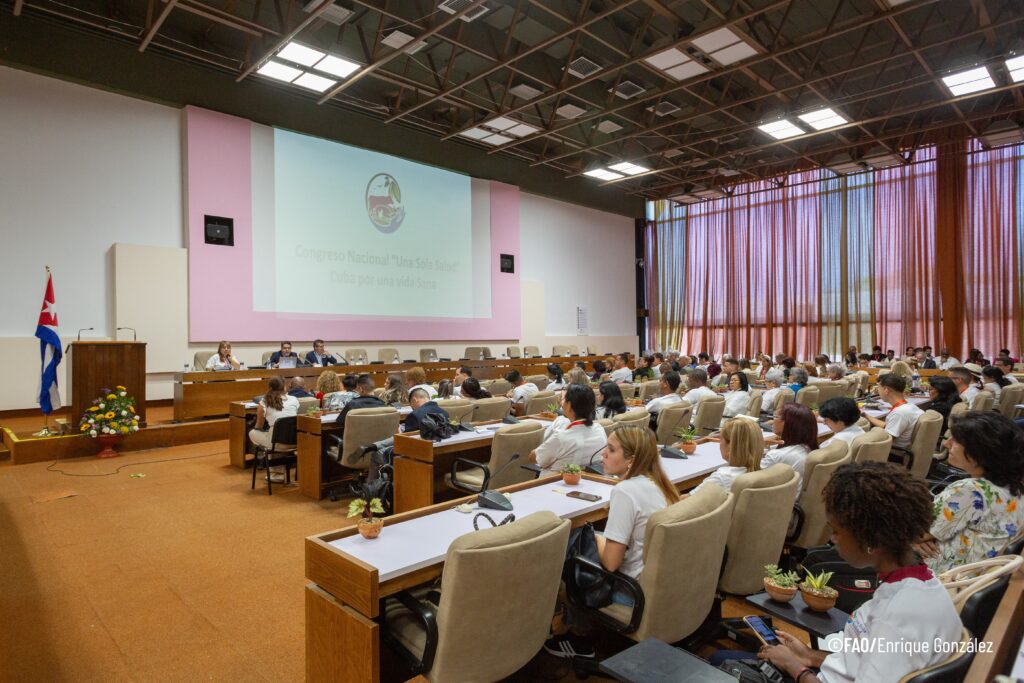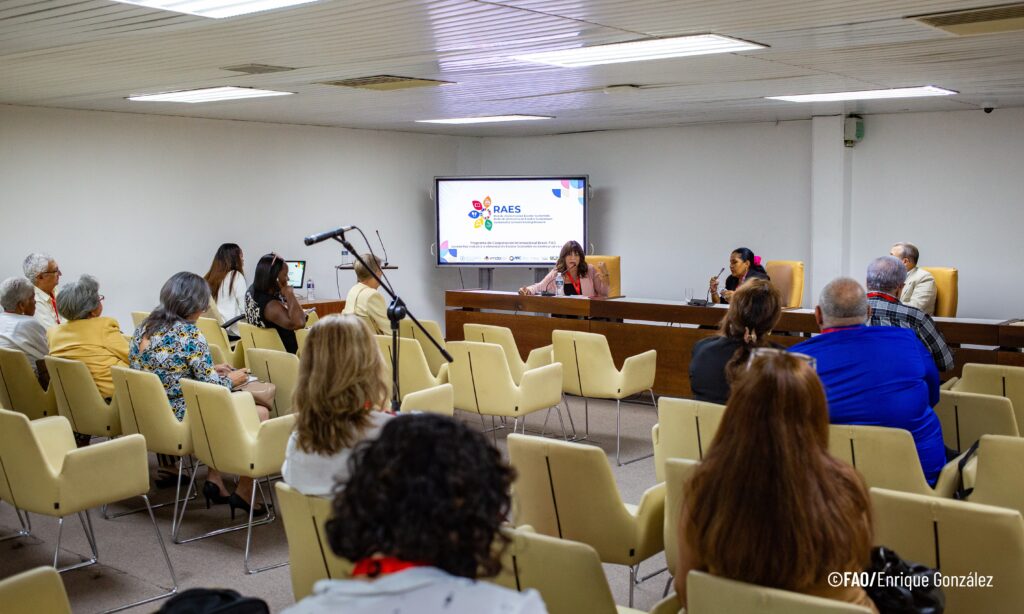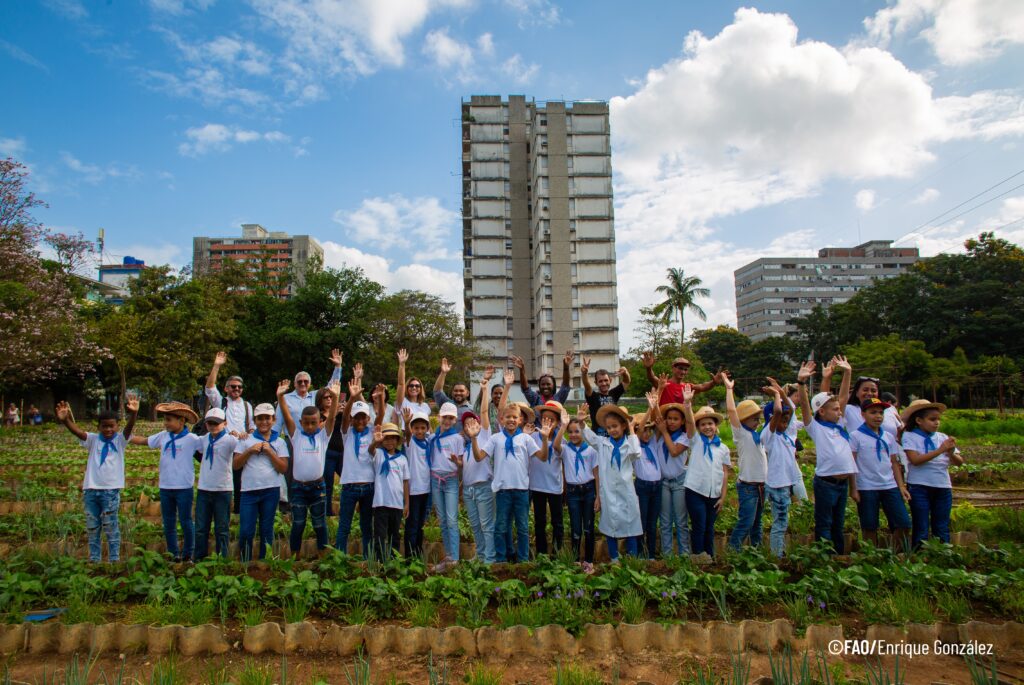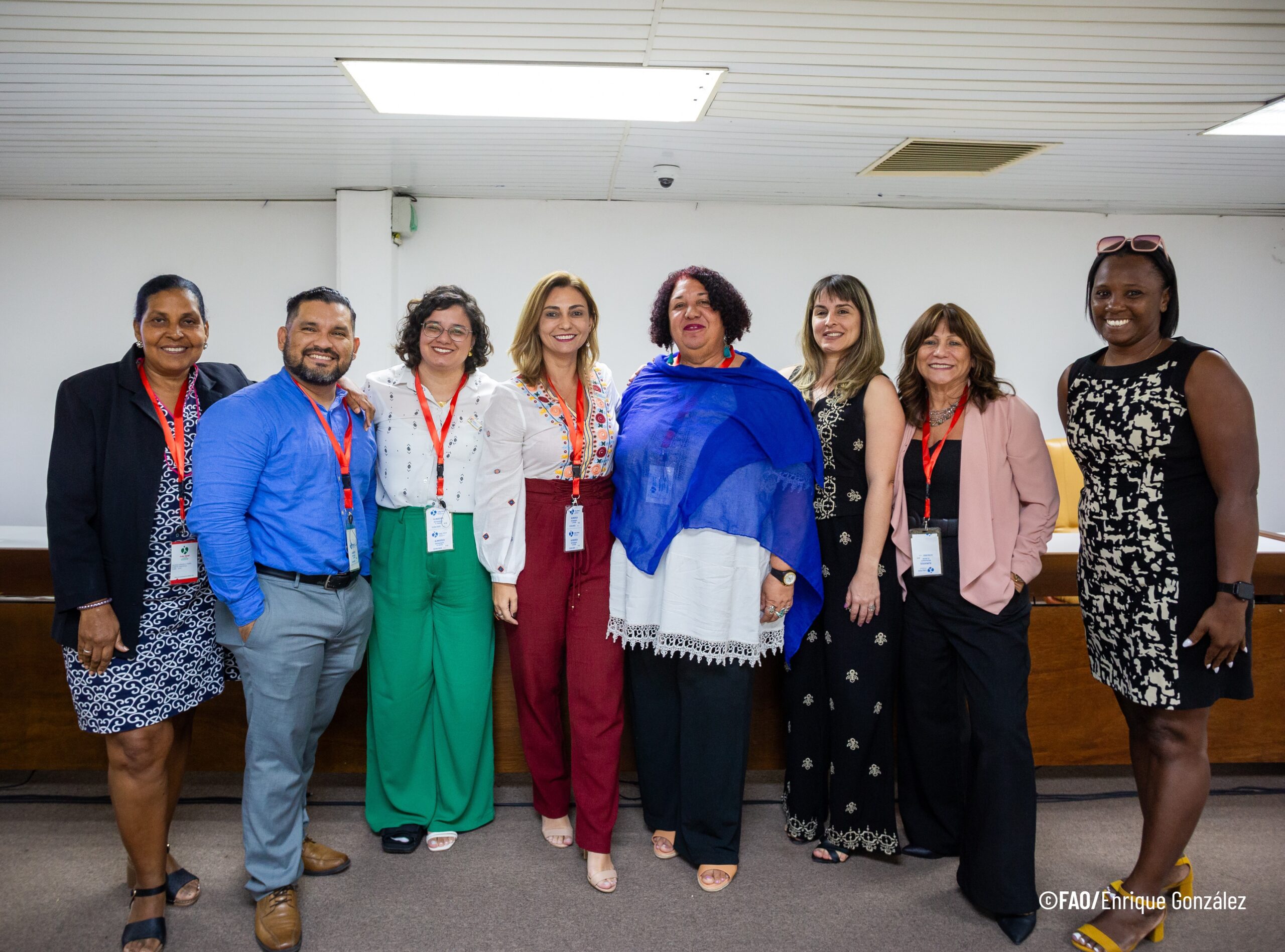The Sustainable School Feeding Network (RAES) took part in debates on key issues related to school feeding programmes in Latin America and the Caribbean.
25 April 2025, Havana, Cuba – Representatives from the Sustainable School Feeding Network (RAES) of Latin America and the Caribbean participated in the hygiene and epidemiology forum, “Learnings, Opportunities and Challenges to 2030”, held within the framework of the V International Cuba Health Convention 2025, which took place in Havana from 21 to 25 April.
Participants included Najla Veloso, Senior School Feeding Specialist at FAO and Executive Secretary of RAES; Karine Santos, General Coordinator of Brazil’s National School Feeding Programme (PNAE) at the National Fund for Educational Development (FNDE); Riffat Rego, Project Analyst at the Brazilian Cooperation Agency (ABC); and Israel Ríos, FAO Nutrition Officer for Latin America and the Caribbean.
Speaking at the panel “School Feeding for Sustainable Development”, Najla Veloso highlighted the experience of the 17 member countries of the Network, which since 2018 has promoted dialogue, capacity building, and the exchange of experiences and information, with the aim of strengthening school feeding programmes throughout Latin America and the Caribbean. RAES seeks to contribute to the achievement of the Sustainable Development Goals (SDGs) and to collaboratively build a regional agenda for sustainable school feeding with countries from the region.
Veloso addressed the state’s responsibility regarding school feeding to achieve food and nutrition security for student, as well as the need to foster dialogue between the health and education sectors.
Meanwhile, Karine Santos emphasised the reach of Brazil’s national school feeding programme, which supports 150,000 schools and around 40 million students through coordination with local governments and the involvement of 8,000 nutritionists. “This is an intersectoral issue, involving family farming, civil society, and health,” noted the General Coordinator of the Brazil’s national SFP.
Experts from various disciplines and representatives of national and international institutions discussed the challenges linked to nutrition. In this context, Israel Ríos, FAO Nutrition Officer for Latin America and the Caribbean, reflected during his presentation on the challenges facing the transformation of agrifood systems towards better nutrition.
Ríos underlined the importance of improving food environments, promoting value chains, using evidence and innovation in decision-making, ensuring food safety, and advancing food and nutrition education.


School Visit
As part of the forum’s activities, members of RAES, FAO, and representatives from Cuba’s Ministry of Education, Ministry of Agriculture, and the National Institute of Hygiene, Epidemiology and Microbiology visited third-grade students at the Frank País Primary School, at the “La Sazón” organoponic farm in Havana’s Plaza de la Revolución municipality. During the visit, the children shared their experiences on the importance of healthy, nutritious eating and health care.
Through exhibitions, theater and music, the students explored how a balanced diet not only contributes to their growth but also to their overall well-being, strengthening the connection between local food production and its impact on health.
RAES is a trilateral South-South cooperation initiative developed by the Brazilian Cooperation Agency of the Ministry of Foreign Affairs (ABC/MRE), the National Fund for Educational Development (FNDE/MEC), and Food and Agriculture Organization of the United Nations (FAO), acting as the Executive Secretariat.
Since October 2024, Cuba has been part of this initiative, whose participation will help drive a regional agenda that includes: the development of a study on the components of school feeding programmes, the construction of the regional agenda and definition of priority topics, and the debate on national school feeding policies.








